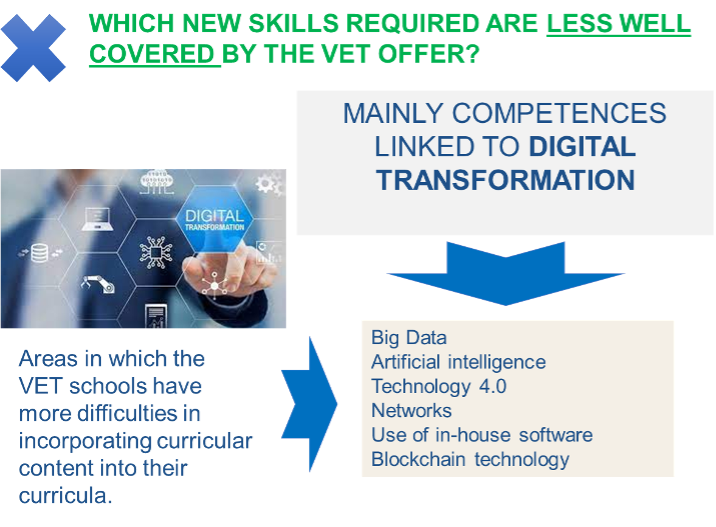YEP MED in Spain highlights Occupational Training as a key tool for improving employment opportunities in the Port Logistics Sector
Let’s get started by addressing an issue that has gained momentum lately: unemployment. Unfortunately, youth unemployment rate in Spain has risen dramatically up to 37%, well above current rate in the Eurozone (17%). Yet, there are sectors, such as port logistics, where a significant number of companies linked to the port community have enormous difficulties in finding employees matching the skills and knowledge currently required. Therefore, it is necessary to ask ourselves the following question: how can this situation be handled?
In order to tackle this issue, focus must be brought to the very fact that it is necessary to have the support of European institutions that promote initiatives linked to enhancing employment among the most disadvantaged groups. For this reason, the Valenciaport Foundation, with the aim of contributing towards the structure the port logistics community and promoting cooperation within the sector decided to join the YEP MED project (Youth Employment in Ports of the Mediterranean), financed by ENI CBC MED Programme and led by the Escola Europea – Intermodal Transport. This initiative is aligned with the goals of collective social responsibility and sustainable development pursued by Valenciaport at present.
At the Valenciaport Foundation, the innovation and knowledge centre of the first port cluster in the Mediterranean, we have been leading training in the sector for over 30 years, and we are aware that adapting training to the real needs of companies is essential to facilitate the labour insertion of young graduates, NEETS and women. For this reason, within the framework of the YEP MED project, a study (link to follow) of the professional profiles required in the port community of Valencia has been carried out. In this study, conducted in February 2021, 81 companies participated, of which 40% replied that they expected to increase the number of employees in the next three years. This proves the impact of international trade on employment in our sector has not diminished, even in the difficult times such as the present pandemic situation. Furthermore, 7 out of 10 companies expressed their intention to make new hires, with more complex qualification levels than those that currently characterized on their skills map.
Over and above that, in the aforementioned study, it was seen that the Vocational Training programmes profiles were playing a fundamental role in covering the demand of jobs in the port community of Valencia. Specifically, the international trade, transport and logistics and administration programmes are the ones that form the basis of a very important part of the most demanded professional profiles. Most companies in the port community have employed Vocational Training graduates 87.7% of the time. However, the training provided by these training cycles has been found to be in need of revision as it is too general. Likewise, it must be pointed out that the curricular designs of the Vocational Training offer have not incorporated training content linked to some of the main challenges that the port community of Valencia has to face, in particular with regard to environmental transition and digital transformation (i.e. big data, artificial intelligence, 4.0 technology, networks, internal software, blockchain technology, etc.)

Image 1: Skills required not covered by VET offer (Source: profile study required professionals by the companies in the port community of Valencia
In a similar sort of fashion in this study interviews were held with the main Vocational Training institutes from Valencia linked to the sector. These interviews led to the conclusion that at the present time, although many students have successfully completed their VET degrees, they have not been able to find employment on the grounds or they do not meet the necessary skills and knowledge. This fact has shown that it is not only necessary to improve the existing degree curricula, but also to create occupational training programmes that provide students with the necessary competences to be able to find a job. These should prepare students through a short-term, dual learning model and be designed with the objective of filling specific jobs.

Figure 2. Occupational training in Valencia Source: Fundación Valenciaport
In this sense, on account of YEP MED, we have worked together with representatives of the public employment service on the 100-hour long occupational training course "Administrative and financial management of international trade". This online programme is based on active learning models where the student is no longer a mere recipient of information but becomes the protagonist of it, due to collaborative learning environments and learning by doing methodologies. In Valencia, thirty unemployed students or those on the verge of losing their jobs have had the opportunity to participate in this experience, mainly conducted by professionals in the sector. In this course, the students have had the opportunity to carry out the analysis of numerous real cases in a real ERP tools specifically designed which gave them access to a simulated business environment.
In the final analysis, the work which is being developed within the YEP MED framework has given prominence to the fact that to facilitate the incorporation of young graduates and females into the labour market in the port logistics sector, it is pivotal to work on improving both vocational and occupational training education. In the light of the above, it is obvious that we cannot ignore on the one hand the changes related to the digital transformation and ecological transition and, on the other hand, new models of active learning that engage student participation and promote learning by doing.
Written by Mar Monzó Granel
Training Technician, Valenciaport Foundation










